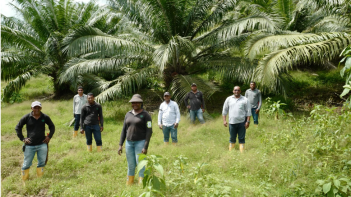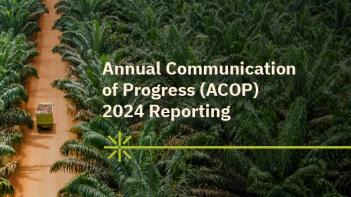A new report by Climate Advisors, a consultancy specialising in climate and financial risk in the land sector, has shown that companies within the palm oil supply chain that commit to sustainable production have higher equity returns compared to their industrial counterparts.
RSPO members outperform non-members by 24.7 percentage points
Simulating the equity performance of companies from December 2012 to April 2019, the analysis shows that companies that comply with the RSPO Principles and Criteria exceeded a composite performance simulation of palm oil companies by 4.6 percentage points. When compared to non-RSPO member companies, RSPO certified companies outperform by a substantial 24.7 percentage points.
Matt Piotrowski, a senior analyst with Climate Advisors, said “Palm oil has been and will remain a volatile sector. For investors to reduce risk, they should be aware of externalities associated with deforestation and other sustainability challenges. It’s clear that when companies take measures to increase transparency and reduce exposure to deforestation-linked supply, they see stronger returns”.
“While the RSPO has received some criticism for not adopting stringent enough sustainability guidelines in certain areas, there has been substantive progress in the right direction, with many members adopting No Deforestation, No Peat, No Exploitation (NDPE) policies in order to align with the RSPO’s guidelines,” he added.
Read the full article, here.
Keep reading

Call for Expression of Interest: Independent Investigation of a Complaint

Latin American Smallholders, Key Global Brands Gather in Peruvian Amazon to Advance Sustainable Palm Oil

RSPO Forum for Members and Certification Bodies 2025: Strengthening Capacities and Building Bridges with RSPO Members

From Violence to Prosperity: Cultivating Sustainable Palm Oil in San Pablo, Colombia

Palmas de Tumaco: Enduring, Trusting, and Transforming in Colombia’s Pacific Coast
Carry Over Credits for Certified Independent Smallholder Groups

From the Amazon to the Aisles: Discovering Sustainable Palm Oil in the Heart of Peru

Global Trends of Sustainable Palm Oil and China's Pathway




